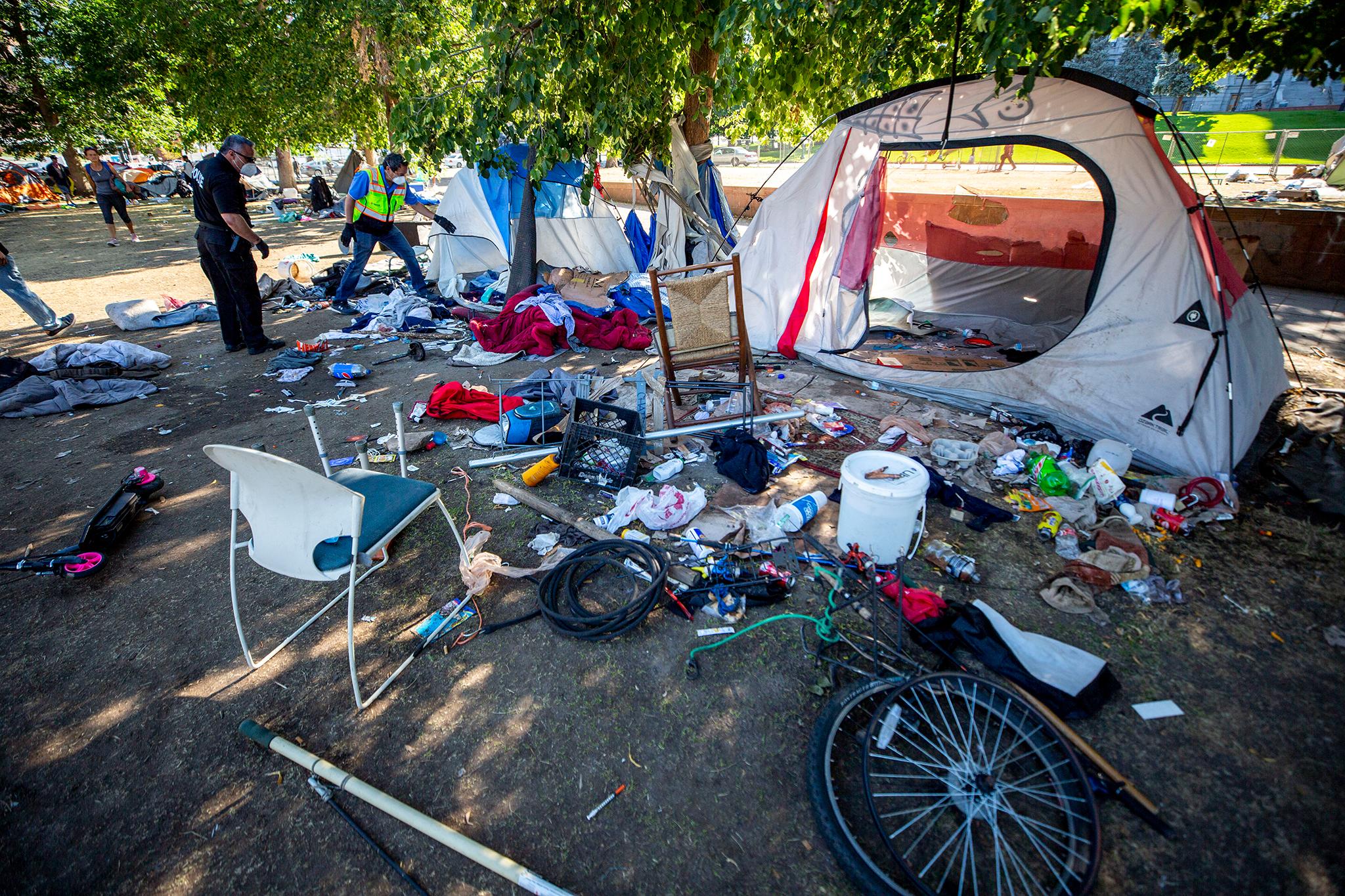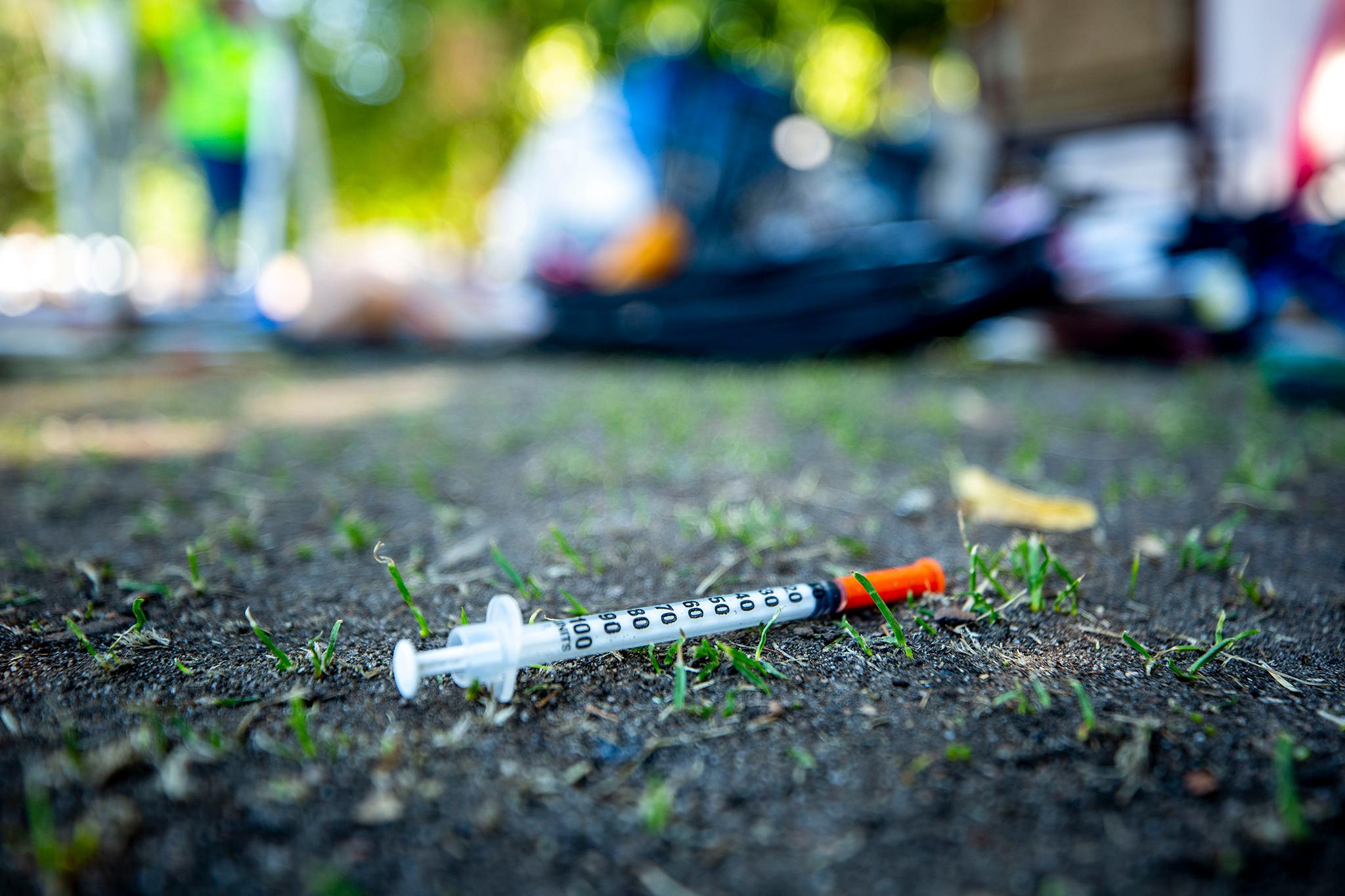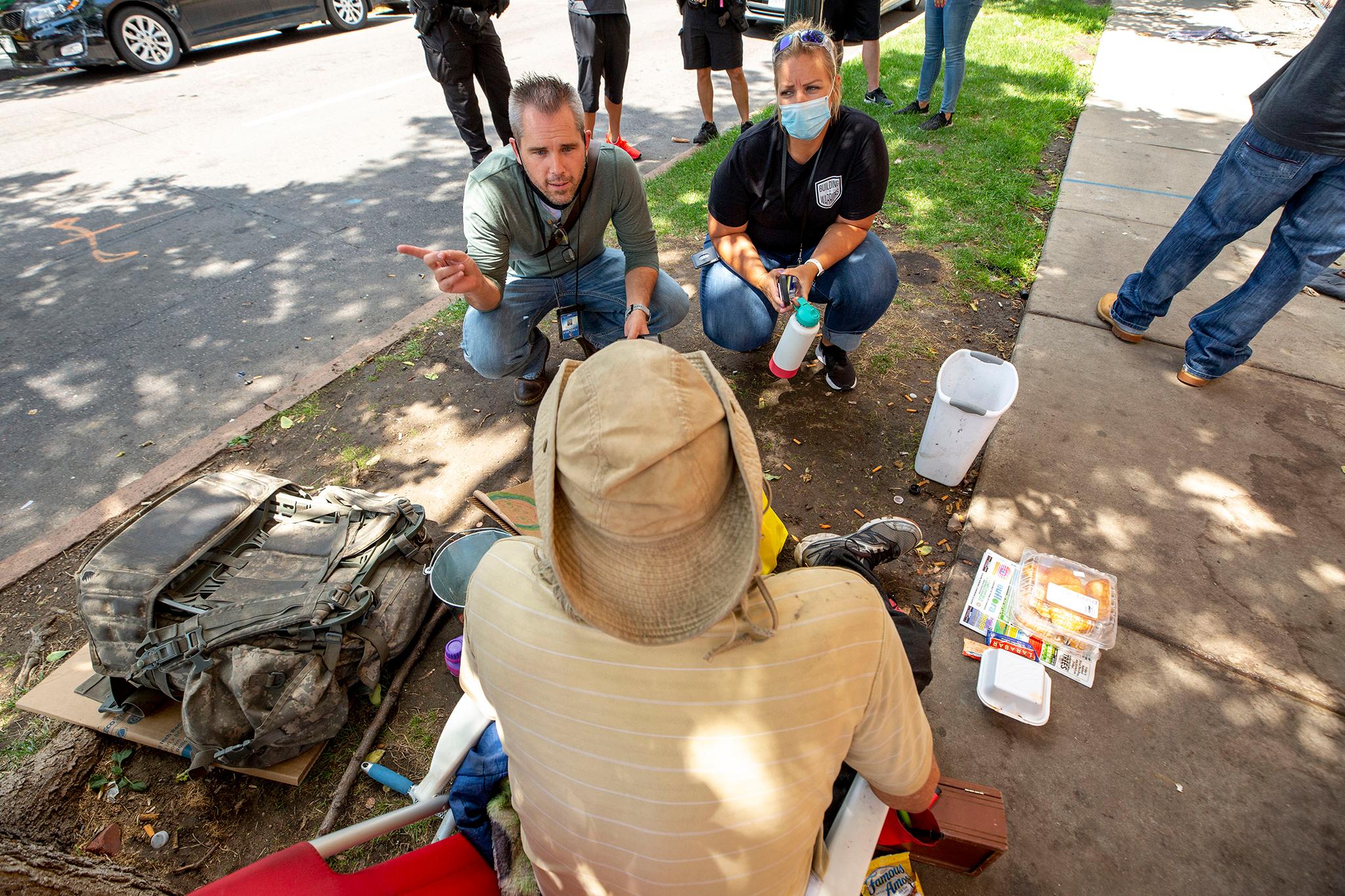Poorly planned, poorly communicated, unacceptable and undignified.
The service providers the city depends on to shelter and support people experiencing homelessness were blunt in their assessment of an operation this week to remove a tent city from a park near the state Capitol. Helmeted state troopers took part in the clean-up led by Denver's Department of Public Health and Environment, which had declared Lincoln park a health hazard.
Carl Clark, president and chief executive officer of the Mental Health Center of Denver, said one of his outreach workers assigned to ride along with police was surprised to find she was in the middle of Wednesday's clean-up. Once she collected herself, Clark said, she called in four colleagues, and they were able to provide help that included securing rooms for five people in some of his center's residential facilities and getting another person a bus ticket to go to stay with relatives out of state. They could have done more if they had warning and more time, Clark said.
"You can't just sweep a place and not have options for people," Clark said. "There needs to be a better solution."


Britta Fisher, director of the city's housing department, said more than 100 people were camping in the park and that 540 shelter beds were available at the start of the week. She added that alternative accommodations such as hotel rooms could have been arranged for people, including couples who wanted to stay together, for whom shelters were unsuitable.
The Colorado Coalition for the Homeless called the sweep "appalling" in a letter to Mayor Michael Hancock and Gov. Jared Polis. The coalition noted that the Centers for Disease Control and Prevention has advised against dispersing groups of people experiencing homelessness during the pandemic for fear of disrupting their connections to service providers and making it more difficult to control the spread of disease.
"Rather than spending thousands of dollars to remove people from their current living situation, just to set up their tent nearby and lose community and provider connections, the city and state should reallocate those funds to provide permanent housing solutions," the Colorado Coalition for the Homeless wrote Hancock and Polis. The organization called for more housing vouchers, more subsidized housing and more funding for supportive services.
Denver Public Health conducted COVID-19 testing among people camping at Lincoln Park on July 22. Just two of the 92 people tested had the coronavirus. City public health officials say they have to balance other hazards presented by the encampments, where diseases linked to poor sanitation such as hepatitis A and shigellosis have been detected.
Speaking to reporters on Friday, Hancock said other hazards associated with encampments included needles scattered on the ground and crime.
"We cannot allow for these encampments to exist in our city," Hancock said.
"We will continue to be diligent with regard to the cleaning as well as the breakdown of these encampments," Hancock said. "We continue to work to make sure there's enough space for everyone to move to."
He stressed that his city was spending millions of dollars to care for people experiencing homelessness and to invest in housing.
In an email to Denverite, a spokesman for the governor said the state has bolstered Denver's efforts to aid the unhoused during the pandemic.
"About 3,400 of these households have been assisted through newly-created emergency programs. The state even activated the National Guard to support and staff many shelters in Denver," Polis spokesperson Conor Cahill said. "The state will continue to work with state and city homeless services and housing providers and anyone else, to identify safe solutions for people who are living outside."
In an earlier statement, Polis had portrayed the cleanup as a means "to protect the well-being of Denverites, those experiencing homelessness, and everyone who visits the city."
"The Capitol is not only the symbol of our republic but also where the legislature convenes and a popular site for the exercise of free speech from perspectives as varied as our state is large," Polis said. "When people attend these hallowed grounds they should feel safe. Instead, the area recently became a public health hazard dangerous for both those experiencing homelessness and for visitors, and that is not acceptable especially during a pandemic."
In its letter, the Colorado Coalition for the Homeless said Polis "seems to believe that ignoring homelessness and the housing crisis in Colorado will somehow make it go away. We know that our community cannot simply wish homelessness away. The Governor needs to take this issue seriously and devote significant resources to address before complaining about people living near the Capitol."
Stephanie Miller is CEO of Denver's Delores Project, which provides shelter and permanent housing where women and transgender individuals can get job and health counseling and other support. In a statement Thursday, Miller said clean-ups called because of public health concerns have displaced hundreds in recent months.
"Continuing sweeps of homeless encampments without immediate alternative resources and safe locations for the displaced individuals is unacceptable and undignified," Miller said.
She called for providing housing instead of persecuting "our unhoused neighbors for seeking their own solutions to their immediate need of survival and shelter." Her statement also referred to the city's recent decision to allow sanctioned camping where people experiencing homelessness would be given tents, access to showers and bathrooms and support such as counseling.
The city and service providers are working to identify a location for the first of what are expected to be two or three sanctioned campsites. Miller's statement called for public spaces where people already are camping near the Capitol to be equipped with sanitation services and clean water and for the state to provide state-owned land for such camps, sometimes called safe outdoor spaces.
The nonprofit Colorado Village Collaborative is to manage Denver's first sanctioned camp once a site has been selected. In a statement that referred to Wednesday's clean-up, the Colorado Village Collaborative called on Polis "to intervene in a safer, healthier, human centric manner" by making state-owned land available for sanctioned camping.
The Colorado Village Collaborative statement was signed by The Delores Project, the Colorado Coalition for the Homeless, and shelter providers such as Urban Peak, the Denver Rescue Mission, Catholic Charities of Denver, Volunteers of America Colorado and the Salvation Army.













